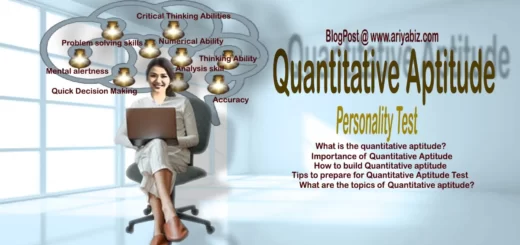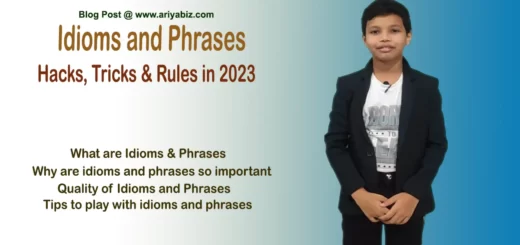Logical Reasoning: Methodical approach of thinking in 2024

Welcome Readers in the Blog post of ‘Logical Reasoning: Methodical approach of thinking in 2024.’In this blog post we are going to explore Logical Reasoning, its meaning, types, process of Reasoning with tips to anatomy of Reasoning question.
What is Logical Reasoning?
We all require food, water, shelter, and one other thing in life that is education. Through logical thinking, reasoning abilities are cultivated in our minds through mental education, unfortunately, the value of logical thinking abilities is undervalued in education, and as a result, training in logical thinking abilities is seem to be ignored. And in the modern world, logical reasoning is a tool used to determine whether a candidate can make wise decisions in difficult circumstances. Logical Reasoning tests skills, not knowledge. Today’s JEE, SAT, and GMAT aptitude tests, as well as other government and non-government recruitment exams, are based on this mastering of logical reasoning, critical thinking, and problem solving ability.
This is the foundation for math, computer science, and many other fields. Both logical thinking and critical thinking are higher-order cognitive abilities required for the effective operation of logical reasoning, which assesses the capacity to comprehend problems, concepts, situations, and connections between facts or ideas.
Key components of Logical Reasoning
Logical and reasoning are the two words that make up the phrase “logical reasoning.”
Logical : It represents logical thinking.
Reasoning: Reasoning is the process of thinking in which a person recognizes a problem, identifies, assesses, and chooses a solution. It simply means seeking explanations.
One of the most important types of reasoning, it takes a methodical approach to reach a particular conclusion.
Types of Logical Reasoning
There are two main types of Logical reasoning that are verbal and non-verbal.
Verbal Reasoning
Verbal reasoning is the cognitive ability to understand and interpret information presented in written or spoken language expressed in words or in bulk from of the text.
Nov-Verbal Reasoning
Non-verbal reasoning is a cognitive skill that involves asking questions about relationships, patterns, and sequences in base images that are based on diagrams, puzzles, series, or abstract symbols. In professions like engineering, architecture, and design that demand strong visual-spatial skills, nonverbal reasoning is especially important.
You may also like to read
Process of logical reasoning
The left hemisphere of the human brain is where reasoning typically occurs in the latter stages of the logical thinking process. The ‘logical’ or left brain uses strategies based on common knowledge and the individual’s past experiences to problem-solve and make logical decisions after taking into account all the pertinent data.
- Deductive Reasoning
This method of logical reasoning, in contrast to deductive reasoning, goes from the general to the specific. Starting with a broad premise, you then apply it to a more detailed premise. Consider these two instances:
Example: All dogs are four-legged. Jimy is a dog. Jimy has four legs.
- Inductive Reasoning
A type of reasoning called inductive reasoning progresses from the particular to the general. You begin with a specific observation, identify patterns, and then draw a broad conclusion.
Example: Jimy is a dog. Jimy is four-legged. All dogs have four legs.
- Abductive Reasoning
When using abductive reasoning, the best prediction is made using an incomplete observation (or set of observations). Though it could be accurate, this is ultimately just a best guess.
Example: All dogs have four legs. Jimy is four-legged. Jimy is a dog.
You may also like to read this
Anatomy of a Logical Reasoning question
This type of Problem formulated by three components
A reasoning question is distributed in three parts:
- Paragraph or Stimulus
This section contains the key ideas or data that are taken from the points of comparison, which could be a passage, a manuscript, a story, or a group of sentences. If there are two speakers, there may occasionally be two arguments.
- Question or task
This text is a question that can be found below the stimulus.
It might, for instance, inquire as to what presumption is necessary to the argument or what must be true in light of the aforementioned assertions.
- Options
There will be five options available to you, but you can only choose one. You’ll notice that we’ll refer to the right decision as the “answer”.
Steps for improving Logical Reasoning
To tackle this sections most effectively do the following things:-
- Understand the task
- Understand the passage
- Understanding the terminology
Terms like True, False, AND, OR, NOT, tautology, contradiction, and so forth are frequently used. Similar to any other field, logical reasoning has a set of terms that you should become familiar with in order to correctly solve problems. You won’t even be able to infer the information from the passage if you don’t understand the terms.
Assumption, Conclusion, Premise, Argument, Observation, and Inference are a few of the words that make up the structure of LR problems.
- Take time to think.
- Keen observation of patterns.
Candidates should mentally prepare themselves because they will encounter many patterns that they are not accustomed to seeing in their daily lives. These patterns are provided to test the students’ computational, observational, and mental number-sync abilities.
- Evaluate the choices to avoid negative marking risk.
- Practice regularly previous year papers and mock papers.
- Time Management is really important
Time and speed are two integral factors for solving logical reasoning problems.
- Train your mind with crosswords, Sudoku, playing chess, solving Rubik’s cube, reading mystery novels and do Meditation.
Conclusion
Whether you want to pursue higher education or are looking for a job, this is equally important because both the admissions tests and the recruitment tests include the LR Test. A mental process is logical reasoning. Using logic and common sense to solve problems is the essence of logical reasoning.
Every stage of human life requires the development of a critical and logical mindset. Learning these techniques can help young people develop their perspectives, enhance their coping skills, and shape their personalities for new-age dynamics.
Always refer to your syllabus and your study plan, and for skill development, use time management apps and educational websites. Logic-building abilities are beneficial for personal development in addition to placements and assessments. So, you must concentrate on them. Go on reading! I’m grateful.



